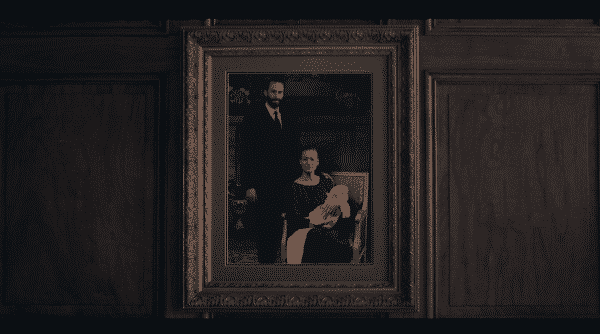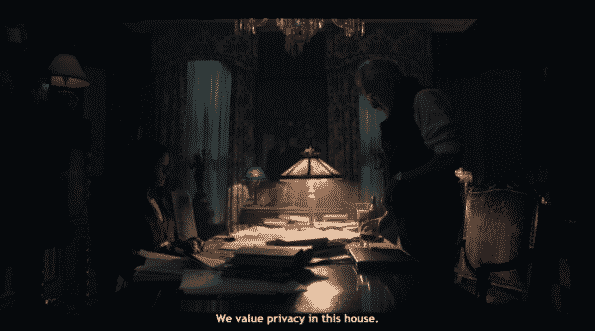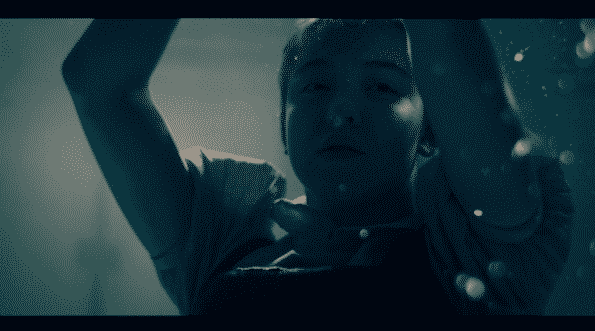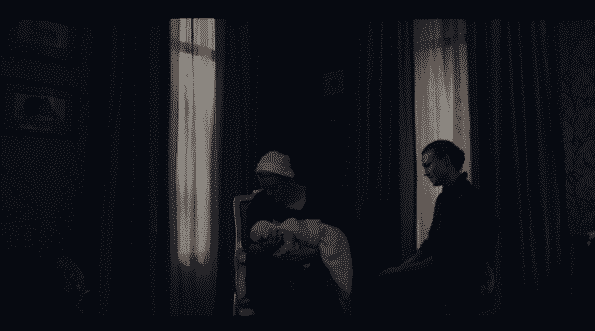The Handmaid’s Tale: Season 2/ Episode 12 “Postpartum” – Recap/ Review (with Spoilers)
June may find herself responsible for yet another death as Emily finds herself in a rather peculiar commander’s home. Network Hulu Director(s) Daina Reid Writer(s) Eric Tuchman Air Date 7/4/2018 Actors Introduced Commander Joseph Lawrence Bradley Whitford Cora Victoria Fodor Eleanor Julie Dretzin We Value Privacy Here: Joseph, Cora, Eleanor, Emily, Aunt Lydia In order…

Spoiler Alert: This summary and review contains spoilers.
Additionally, some images and text may include affiliate links, meaning we may earn a commission or receive products if you make a purchase.
June may find herself responsible for yet another death as Emily finds herself in a rather peculiar commander’s home.
| Network | ||
| Hulu | ||
| Director(s) | Daina Reid | |
| Writer(s) | Eric Tuchman | |
| Air Date | 7/4/2018 | |
| Actors Introduced | ||
| Commander Joseph Lawrence | Bradley Whitford | |
| Cora | Victoria Fodor | |
| Eleanor | Julie Dretzin | |
We Value Privacy Here: Joseph, Cora, Eleanor, Emily, Aunt Lydia
In order to not get sent back to the colonies, naturally, Emily needs a new commander. Problem is, her reputation is for any and all commanders to review and that makes her someone most commanders, we’re told 4, don’t want. However, Commander Joseph Lawrence is different. In fact, he also is rather private so no sooner does he see Aunt Lydia drop Emily off does he say she can leave.
Now, why is he so private? Well, it could be because, as seen with Cora, he isn’t as strict and by the book as most commanders. I mean, he leaves reading material, comics, out in the open, despite how they can lead to fingers being cut off, he has banter with his Martha Cora, and then there is his wife. When it comes to Eleanor, and her talking about Joseph coming up with the colonies, it isn’t clear if she is telling the truth or not. Not because it doesn’t seem like the truth, for Aunt Lydia notes Joseph is the architect of Gilead’s economy, but because of the way Joseph protects her.
After all, between her being some kind of radical or maybe having a mental illness, people like Aunt Lydia can’t see or hear her. Think about it, have we seen anyone with a mental illness in Gilead? Janine comes close, but she usually has some form of control over herself. Plus, she is a handmaid. With Eleanor, she is a wife and while higher up on the totem pole, that doesn’t mean being killed off or sent to the colonies isn’t an option. So perhaps part of Joseph’s desire for privacy isn’t just because he is secretly more liberal but also to protect his wife? And maybe, just maybe, he chose Emily because he is obligated to have a handmaid and knowing Emily’s file, surely she would appreciate some semblance of normalcy. To the point of keeping up with the rules he has set.
Commentary

Friend or foe is the question here. Joseph seems to be the most eccentric of the commanders we have ever met and is probably one of the few who really pushes you to take note of the way his home is decorated. I mean, even Aunt Lydia seems astonished by him not having the most conservative of homes but does this mean Emily is safe?
Yes, Eleanor seems to be one of the few wives who seem rather nice, even asks Emily for her real name, but considering her husband keeps her locked in a room, is it her or him? Is she being locked up for her own good, since she can’t deal with the oppressive system, or is something wrong with her and Joseph keeps her locked up so that she doesn’t say the wrong thing to or around the wrong person?
But, in terms of Emily, taking note of how he talks to Cora and how he seems to sympathize with Emily’s situation, should he be seen as a bad guy? He didn’t try to rape her but have a conversation. Even allowed her to drink alcohol. So will it be, inside his house, things will be like how they used to be but outside things are what they are? Also, how long can they keep that up for Emily not eventually getting pregnant surely will raise some red flags, would it not?
Find Love Where You Can Get It: Nick, Eden, June, Isaac
Living in the Waterford house has been quite a struggle for Eden. Nick barely touches her, or speaks to her, June is a handmaid who seems to not really like her place in Gilead, and she has fallen for a guy who isn’t Nick. This leads her to try to get some advice from June who seems like a good person and it leads her to say just what Eden needed to hear to validate running away with Isaac. Problem is, even with Isaac being a guardian, it seems he didn’t really plan running away with Eden too well. Thus leading them to being caught and when neither decide to renounce their sins, in front of their families and the Waterfords, they are killed. Which sort of changes the dynamic of the house a little bit. If only because it becomes a bit of an eye-opener for those, unlike June, not used to someone’s death being partly their fault.
Commentary
Can we just go over how Nick not being dead seems very weird? We have been told and shown that guardians are ruthless and yet they seemingly let him punch one of them, while under suspicion, and let him live? Am I the only one who doesn’t understand how, in Gilead society, the ruthless guardians of the law didn’t shoot first and worry about questions later? Especially considering they were in the middle of nowhere in which there assumingly were no witnesses? Is Nick really that valuable to the story?
Then, in terms of Eden, am I heartless for kind of hunching when it came to her death? It’s just, Eden never did much but look doe-eyed and seem indoctrinated in the most pitiful way. And I know her innocence is supposed to be the key to the waterworks here, but it isn’t like she brought the full force of what it meant to be raised in Gilead. Heck, even in terms of June providing the idea that life doesn’t have to be as it was set up for her, it didn’t make her decision to die with Isaac powerful. It just made it into some kind of Romeo and Juliet kind of moment. One in which two kids infatuations got them killed.
Dr. Jekyll, Mrs. Hyde: Serena Joy, June, Fred
For nearly the entire episode, Serena Joy vehemently doesn’t want June anywhere near her or the baby. All she wants is her breast milk. However, Fred, being that he really does not respect his wife or wishes, because of whatever spell June has over him, or just him not wanting her to kill herself like the last handmaid, goes against her wishes. Not only does he bring the baby to June but brings June back to the house. A place where Serena Joy avoids her totally and continues to show she is a bit unhinged – including trying to breastfeed the baby who looks mad they got tricked.
However, after Eden’s death, it seems Mrs. Hyde turns back to Dr. Jekyll. You know, the person June could kind of see herself friends with. Anyone want to take bets how long this may last?
Commentary
This is the episode before the final and it hasn’t really set up anything to make you wonder what big thing may happen next. Serena Joy has flip-flopped again, wow! Eden died, okay you never really invested much into her anyway. Nick is alive – that seems lazy. Then with Emily, honestly, she has been on the fringe so long that leaving her to die in the colonies doesn’t seem all that horrible really.
So what exactly is supposed to be the big punch that leaves us winded for the next season? Fred’s incompetence, with Eden running away, finally being a known fact and leading to him being killed? Maybe Canada, or other countries, doing more than sanctions or some freedom force popping up? At this point, there seriously anything to be on the edge of your seat about. It just seems like just another episode and not the one which should be building up to an epic finale.
Question(s) Left Unanswered
- Does Nick generally just put the fact Luke exists out of his mind when talking about him and June as a thing? Even though it is very clear Luke still loves his wife?
Collected Quote(s) & .Gifs
One can’t let the perfect be the enemy of good. – Aunt Lydia
Low Points
- A character who we frequently saw died and there is no real punch to the gut about it. It’s unfortunate the child died but it isn’t something you necessarily get teary-eyed Even if everyone in the cast get a bit misty about it.
- There isn’t any real reason to get excited about the finale based off what happened this episode, or thus far. There isn’t any build to anything beside more cycles repeating. Like, for this episode, Serena Joy going from being nice to June to, eventually, when her jealousy or insecurity kicks in, going back to treating her as sub-human.
On The Fence
- What may come of this Emily x Joseph He is a weirdo but hasn’t been made to seem like someone who can become a real game changer.
Follow Wherever I Look on Twitter, Like us on Facebook and Subscribe to the YouTube Channel.
Previous Episode’s Recap
[visual-link-preview encoded=”eyJ0eXBlIjoiaW50ZXJuYWwiLCJwb3N0IjoyMzg2OCwicG9zdF9sYWJlbCI6IlBvc3QgMjM4NjggLSBUaGUgSGFuZG1haWQncyBUYWxlOiBTZWFzb24gMi8gRXBpc29kZSAxMSBcIkhvbGx5XCIgLSBSZWNhcC8gUmV2aWV3ICh3aXRoIFNwb2lsZXJzKSIsInVybCI6IiIsImltYWdlX2lkIjoyMzg3MSwiaW1hZ2VfdXJsIjoiaHR0cHM6Ly93aGVyZXZlci1pLWxvb2suY29tL3dwLWNvbnRlbnQvdXBsb2Fkcy8yMDE4LzA2L1RoZS1IYW5kbWFpZHMtVGFsZS1KdW5lLTQucG5nIiwidGl0bGUiOiJUaGUgSGFuZG1haWQncyBUYWxlOiBTZWFzb24gMi8gRXBpc29kZSAxMSBcIkhvbGx5XCIgLSBSZWNhcC8gUmV2aWV3ICh3aXRoIFNwb2lsZXJzKSIsInN1bW1hcnkiOiJEZXNwZXJhdGUgdGltZXMgY2FsbCBmb3IgZGVzcGVyYXRlIG1lYXN1cmVzIGFuZCBKdW5lIGZpbmRzIGhlcnNlbGYgaGF2aW5nIHRvIHB1dCBoZXIgYmFieSBmaXJzdCBhcyB0aGluZ3MgYmVjb21lIGltcG9zc2libGUgZm9yIGhlci4iLCJ0ZW1wbGF0ZSI6ImRlZmF1bHQifQ==”]
Check Out Other TV Recaps
TV Shows We’re Covering This Season
Images used for editorial and commentary purposes. All rights remain with their respective copyright holders.




